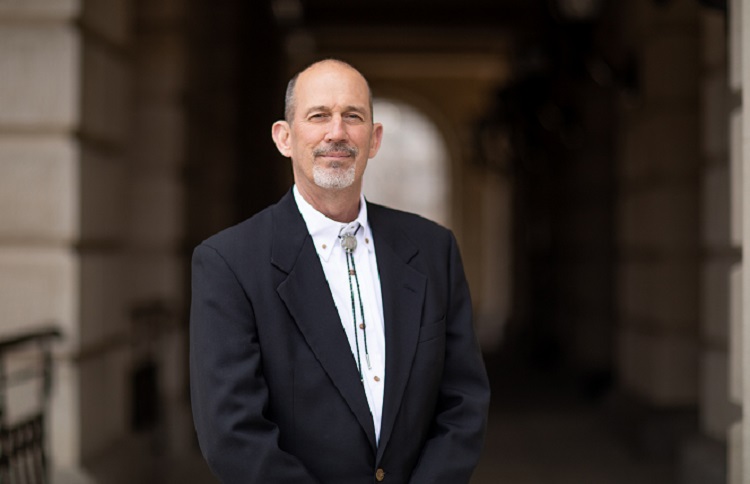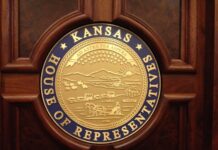The medical community on Monday came out against a bill barring the state health secretary from requiring new vaccines for day care centers and schools.
The bill, backed by Republican state Sen. Mark Steffen of Hutchinson, would turn those decisions over to the state Legislature.
Currently, those decisions are made by the state health secretary under state administrative regulations.
The bill would keep in place the current list of required vaccinations but would prevent the health secretary from adding new ones to the list, namely COVID-19.
A Republican state legislator said Kansas would be the first state in the country in which either the state health department or health secretary wouldn’t make the decision about vaccinations.
A leading supporter of the bill was Kansans for Health Freedom, an anti-vaccination group, which “has no doubt that the addition of new vaccines is likely to occur in the near future,” said Overland Park attorney William Mize.
“Given the political nature health care decisions have taken, no further mandate requests should be left solely to one political appointee,” Mize said.
Opponents of the bill said current law ensures scientific evidence is the basis for vaccination schedules while keeping medicine free from politics.
“This legislation is unnecessary,” said Dena Hubbard, a physician and legislative coordinator for the Kansas Chapter of the American Academy of Pediatrics.
“There is no real problem, no need, no demand or desire to change the law,” Hubbard told the Senate health committee Monday.
“Keeping things as is and voting ‘no’ on this means that medical experts can keep the ability to manage health issues,” she said.
Kansas Health Secretary Lee Norman said the bill would limit the ability of the agency to quickly respond to new medical advances that mean updating the vaccination list.

Norman said he is advised by experts in the Kansas Immunization Program, which makes determinations of the annual list of required vaccines based on the national Advisory Committee on Immunization Practices, also known as ACIP.
The secretary of the U.S. Department of Health and Human Services selects the 15 members of the ACIP.
It is made up of 15 members who have experience in vaccinology, immunology, pediatrics, internal medicine, nursing, family medicine, virology, public health, infectious diseases and preventative medicine.
“It is important that required vaccines remain in regulation rather than listed in statutes to support timely response to changes in ACIP recommendations,” Norman said in testimony.
“A new vaccine may be recommended by ACIP based on evidence which would make it best practice for inclusion in our required list.
“In the same vein, a problem may be discovered, and a vaccine no longer be recommended due to a new safety concern or new evidence of poor efficacy of a particular vaccine,” he said.
The ability to respond to those changes, he said, “would be significantly hindered due to the constraints of the legislative process and timeline.”
Kevin Ault, a physician and professor of obstetrics and gynecology at the University of Kansas, is a member of the ACIP.
He said the group’s recommendations are data-driven and approved by the director of the Centers for Disease Control and Prevention and are enforced by the American Academy of Pediatrics and the American Academy of Family Physicians.
Steffen asked Ault whether academia was free of politics.
“We don’t have elected officials telling us what to do,” said Ault, who testified before the Senate health committee by video.
“I was listening in trying to figure out the definition of politics when you were debating it. No, we’re not elected. We’re peered reviewed.”
Ault rejected Steffen’s question about whether the COVID-19 vaccines were experimental.
“They’ve been approved by the FDA and recommended by the ACIP under a legal framework that’s been around for 10 or 15 years,” he said.
Connie Newcome, president of Kansans for Health Freedom, said the state is a “puppet” of the CDC and the ACIP.
“They regurgitate what they are told to do by agencies who receive funding and
influence from pharma,” Newcome said.
“The egregious policy of forcing vaccines intramuscularly into healthy children for illnesses they would almost never have needs a thorough rethink,” she said.
Other public health advocates said the Legislature should have no role in making decisions about vaccines.
“The Kansas Legislature lacks the expertise in disease prevention and immunization decision making to be the appropriate body to make such vaccine determinations,” said Rebecca Johnson, director of the Southeast Kansas Multi-County Health Departments.
The state health department “employs public health experts who are trained in such science and are the ideal decision-makers to protect the public’s health from vaccine-preventable diseases,” she said in written testimony.

Steffen, who also backed a separate bill barring employers from requiring vaccines, said the bill was intended to address the COVID-19 vaccine.
“It protects our children from a vaccine that has a morbidity and mortality profile equal to or higher than the COVID-19 virus itself for sure in this age group of people,” Steffen said.
States have generally not been giving COVID-19 vaccines to children under age 16.
“It is a vaccine that is experimental, a vaccine that is gene manipulative, a technique that has never been used before and its long-term dangers won’t be fully known for decades,” he said.
Republican state Rep. John Eplee, a physician for the last 40 years, came out against the bill, saying vaccinations have been essential for holding down the spread of disease.
“Gosh, I’ve heard a lot of information here today that I don’t agree with,” he said.
“It makes me sad that we hear the issues that we hear because we’re victims of our own successs,” Eplee said.
“Vaccinations are abundantly successful, and because of that we don’t see the diseases that we used to see at one time,” he said.
Eplee said that in all 50 states, either the state health department or the state health secretary makes decisions about vaccines.
“Kansas would be the first to go against the grain on that,” he said.
In 13 states, the health secretary sets those requirements, and in 34 states it’s either a board or commission. And in three others, the states rely on federal guidelines.
“These are firm recommendations,” Eplee said.
“These are not something done willy nilly. They’re done by scientists and by experts.”
Steffen, an anesthesiologist, at one point mixed it up Eplee.
Steffen asked Eplee if the COVID-19 vaccine had any risk and whether he was familiar with a federal database that showed 1,000 deaths resulting from the innocualation.
Eplee said every vaccine has some relative risk but said those were only allegations about deaths resulting from the vaccine and had not been proven.
“The bottom line being this COVID vaccine does have morbidity and mortality and I am not willing to take the decision-making out of the hands of the parents,” Steffen said.
In the first month of vaccinations from last Dec. 14 to Jan. 13, 2021, the CDC reported 6,994 adverse reactions to the vaccine out of 13.7 million doses administered, or in about 0.05% of vaccinations.
About 91% of those adverse reactions were considered nonserious, and about 9% were considered serious.
A total of 113 deaths were reported, including 78 among long-term care facility residents.
The CDC said that available information from death certificates, autopsy reports, medical records and clinical descriptions did not suggest any causal relationship between COVID-19 vaccination and death.
The CDC says the vaccines are safe and effective after being evaluated in tens of thousands of participants in clinical trials.
“The vaccines met FDA’s rigorous scientific standards for safety, effectiveness, and manufacturing quality needed to support emergency use authorization,” the CDC said.
Republican Sen. Mike Thompson of Shawnee questioned how the vaccine could be considered safe when front-line workers were reportedly not getting vaccinated.
“How could we possibly force parents to give children this vaccine when front-line workers are refusing to do so?” he asked.
Kelly Sommers, director of the Kansas State Nurses Association, said there was some hesitancy about getting vaccinated when the doses were first approved.
“We haven’t had time to educate ourselves regarding this vaccine because we’ve been so busy saving the lives of others,” Sommer said.
“As the vaccine has rolled out more, we’re seeing more and more RNs who have been willing to receive this vaccine,” she said.
“We want to continue to educate and advocate on behalf of the public before we would ever make something mandated for a child.”
















